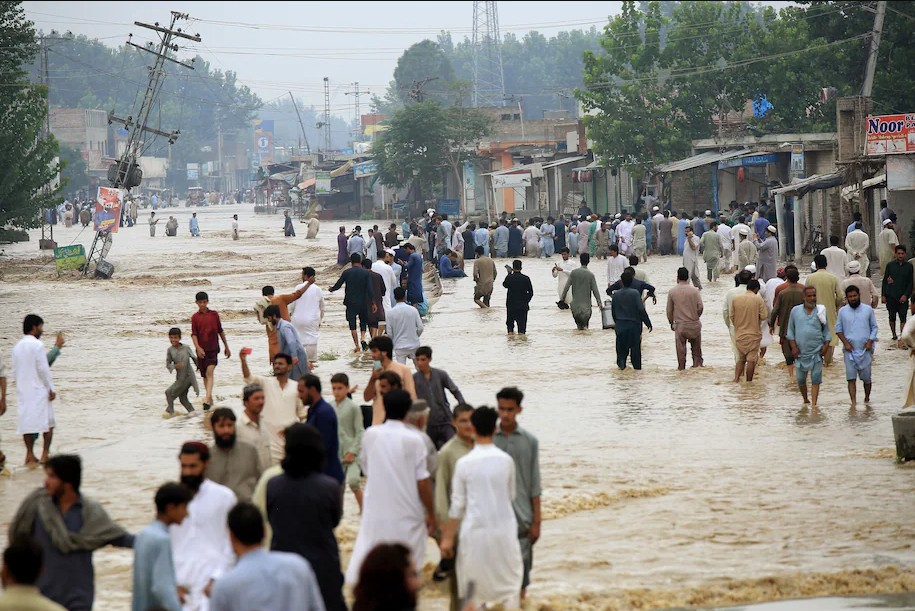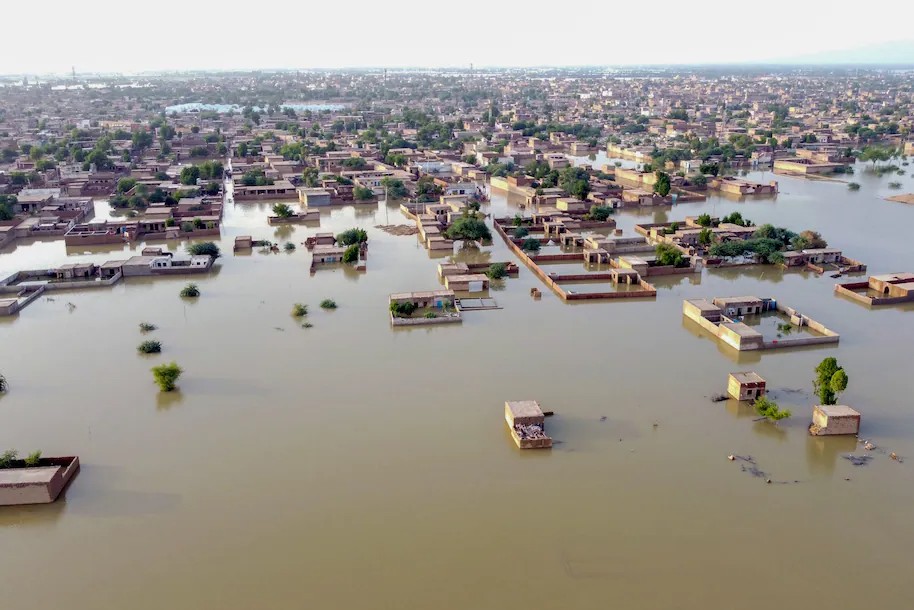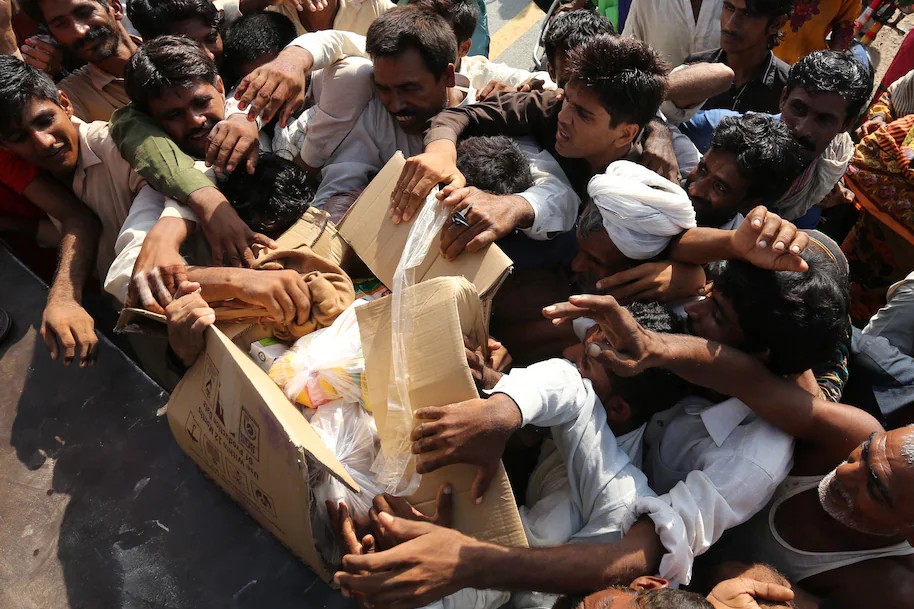
Since mid-June, torrential rain has changed the landscape of Pakistan, submerging villages and fields, destroying homes and killing at least 1,000 people. But if the human toll is catastrophic, the financial toll is almost unimaginable: According to Pakistan’s finance minister, the damage so far is likely to exceed $10 billion, or 4 percent of the country’s annual gross domestic product.
On Tuesday U.N. Secretary General António Guterres made a video appeal for aid to Pakistan, saying, “Let’s stop sleepwalking towards the destruction of our planet by climate change.”
“The Pakistani people are facing a monsoon on steroids — the relentless impact of epochal levels of rain and flooding,” Guterres said. “As we continue to see more and more extreme weather events around the world, it is outrageous that climate action is being put on the back burner as global emissions of greenhouse gases are still rising, putting all of us — everywhere — in growing danger.”
But even as Pakistan turns to donors around the world asking for aid, there is one thing that the country will almost certainly not receive: compensation from the countries — including the United States — that are most responsible for planet-warming greenhouse gas emissions.
While the two issues may seem unconnected, for decades developing countries have asked richer ones to provide funding for the costs they face from heat waves, floods, droughts, sea-level rise and other climate-related disasters. They argue that the nations that became wealthy from burning fossil fuels such as the United States, Germany, United Kingdom and Japan also heated up the planet, causing “loss and damage” in poorer countries.
The issue has become a flash point in global climate negotiations. In the landmark 2015 Paris agreement on climate change, countries agreed to recognize and “address” the loss and damage caused by those dangerous climate impacts. Last year, at the major U.N. climate conference in Glasgow, Scotland, negotiators from developing countries hoped that negotiators would finally create a formal institution to funnel cash to the countries most affected by climate disasters.
But the United States, despite being the largest historical emitter of carbon dioxide, has blocked such efforts at every turn. In Glasgow, the Biden administration joined a group of countries in resisting efforts to establish payments to developing countries that have been hit hard by climate change.


One of the key issues is liability. U.S. delegates fear that if a formal loss-and-damage fund is created, the United States could open itself up to litigation from poorer countries. “We always remain thoughtful about the issue of liability,” John F. Kerry, the U.S. international climate envoy, said during the Glasgow summit.
Preety Bhandari, a senior adviser for climate and finance at the World Resources Institute, points out that U.N. negotiators reached a side deal in 2015 that said addressing loss and damage did not provide any basis for legal liability. “I think there is possibly an overabundance of caution on the part of the U.S. and other developed countries,” she said.
But as the damage mount some are already going to court, as citizens and politicians from vulnerable countries seek compensation for the loss of their livelihoods, homes or farms. In Peru, a farmer is suing a German energy giant; the island nations, meanwhile, are trying to create a commission that would allow them to sue big countries for climate damage.
Kerry has also argued that there are existing channels to help provide relief to countries like Pakistan who are reeling from weather disasters. USAID, for example, is providing $100,000 in humanitarian relief in Pakistan. But such donations pale in comparison to climate change’s mounting toll in the developing world. A report released by the humanitarian group Oxfam in June found that over the past five years appeals for relief from extreme weather were only 54 percent funded on average, leaving a shortfall of tens of billions of dollars. Existing systems also require developing countries to rely on acts of charity, rather than a standardized system for who owes what.
The United States and other developed nations will be forced to reckon with this question at the next big U.N. climate meeting, known as COP27, which is scheduled for November in Egypt. But unless the Biden administration’s perspective changes, significant progress is unlikely.
“This particular issue could make or unmake COP27,” Bhandari said.